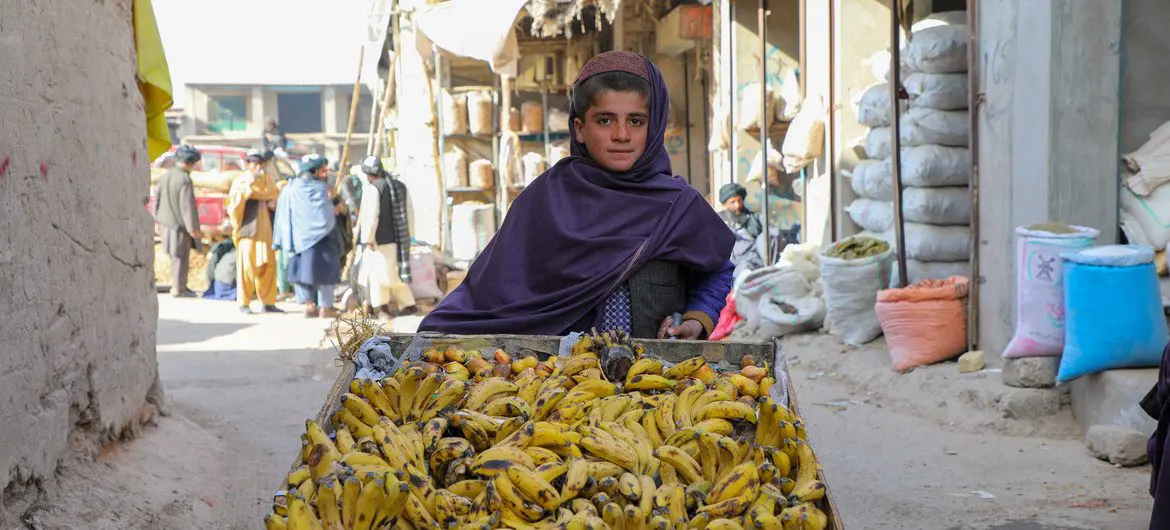Dr Khali Ahmadi* told UN News in an exclusive interview from the Afghan capital Kabul, that he and other healthcare workers are continuing to work despite the lack of security and ongoing instability in the country and called on the international community to carry on supporting Afghanistan.
“Some 8-10,000 people have arrived in Kabul from ten provinces in recent weeks following the advance of the Taliban, and I’m part of a team of doctors and nurses who are providing health care for these new arrivals.
These people fled their homes and now have nothing, no houses, no jobs and very little money and generally they are fearful of living in Kabul and angry that they had to leave their homes. We are providing a range of services to them in camps for displaced people in the city.
They are arriving with many different diseases and common complaints including diarrhoea and pneumonia. Around three quarters of the people we are treating are women and children.
The UN Development Programme (UNDP) is supporting this work and so we are able to provide treatment, medicines and food as well as some screening for COVID-19.
Today [Monday, 23 August] I was part of a team of six doctors including three women, who have been providing women-specific services and have helped to deliver a number of babies. We also have five nurses on the team. Our workday is very long and hard; I start at around 7am and can sometimes work until midnight which means, as a team, we can treat up to 500 people a day.
Sometimes, the security situation means I will stay at home. If there are reports of gunfire or other disturbances as well as roadblocks, the team members decide is too dangerous to work. It can be very tense on the streets. Sometimes, it is just the men who work.
My female colleagues are, of course, concerned about their future, as we all are. They don’t know what the future holds, whether they will be allowed to carry on working as they do now. We don’t know whether the situation will get worse for women, stay the same or maybe even improve.
We have not really interacted in a meaningful way with the Taliban since they entered Kabul, although they did come to the camp once where we were providing services to ask us what we were doing.
Security is the main concern right now for the displaced people, and also for other people in the city, but we are also worried about the lack of medicines and food, as shops and markets are still closed in Kabul.
I am a doctor, so my job is to help and heal people. I feel deeply committed to supporting Afghan people at this time, during this bad situation, but I can only help if I feel safe at work.
My message to the rest of the world is please help Afghanistan; this is a poor country, but the people here have good hearts, and I will continue to do my best to work for and protect all Afghan people.
Read more here about the health services UNDP is supporting for displaced people in Kabul.
*Real name withheld to protect identity







